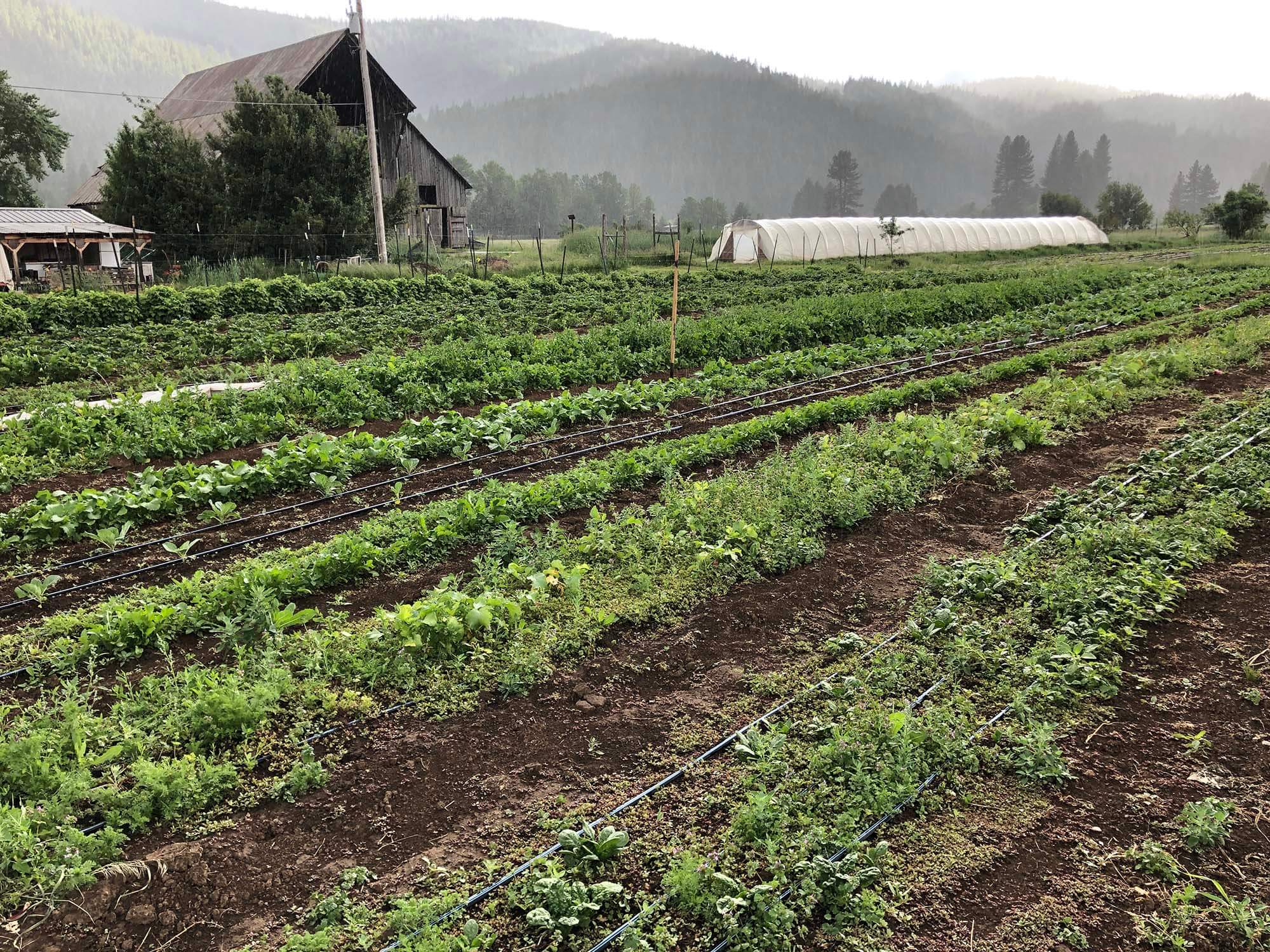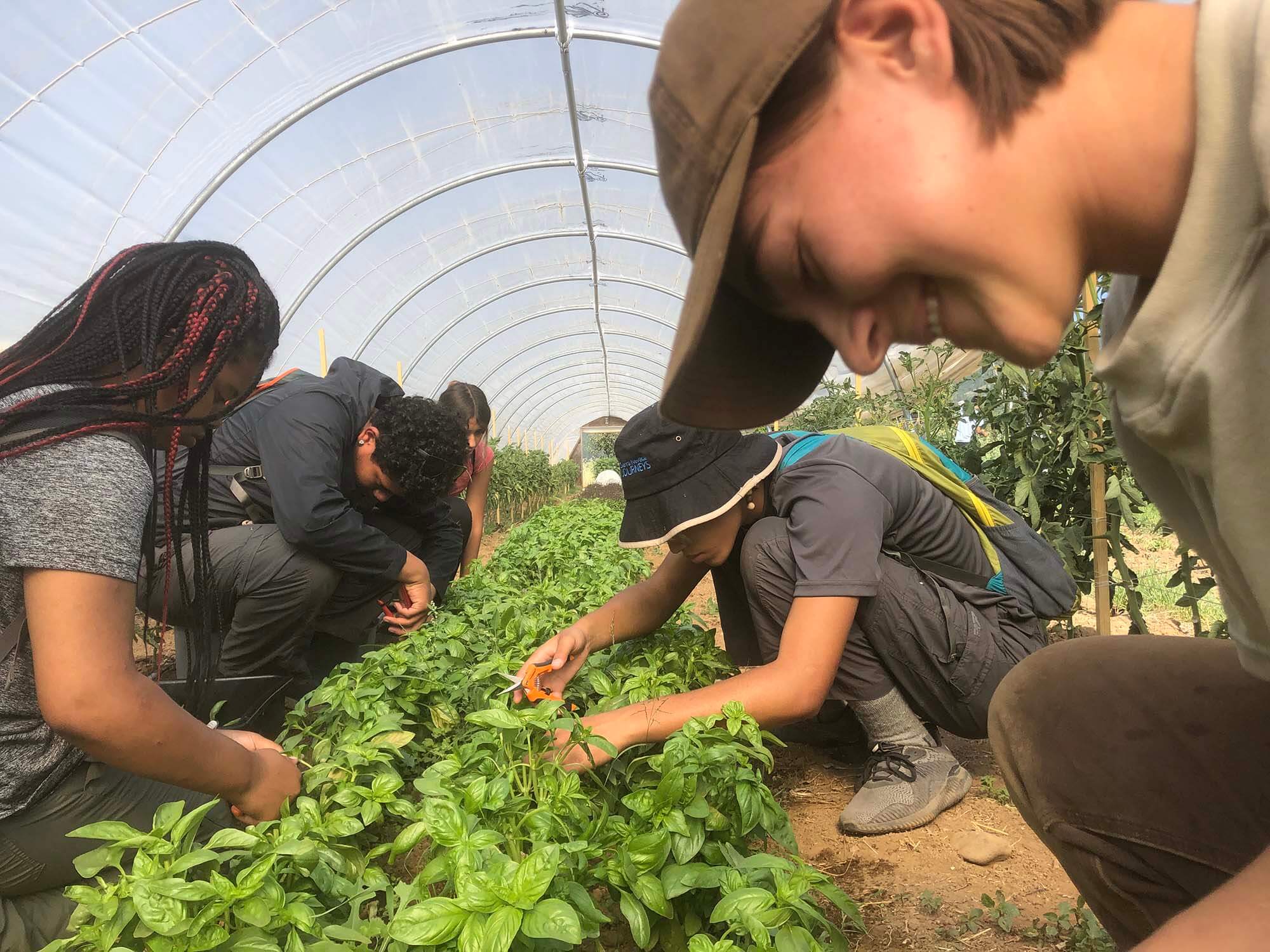Finding food sovereignty with the Lost Sierra Food Project.
In the small town of Quincy, Calif., where the population is fewer than 2,000 people and the number of trees vastly outnumbers citizens, the creators of Lost Sierra Food Project are reimagining food access and the true meaning of community.
Sowing Opportunity
Founded by Jessie Mazar, with co-director Leslie Pace, in 2019, the LSFP was created to provide a space where low-income families, aspiring youths, eager volunteers, and community members could come together for fresh food, farming, and educational opportunities, from learning to compost to re-entering the workforce. On just 2.5 acres of land in downtown Quincy called Rugged Roots Farm, the place actually is more than a farm — it is a safe haven.
The LSFP has coordinated with schools, colleges, farmers, and individuals to increase local food access for Plumas County residents, prioritize underserved populations, provide workforce development programs, and offer food and regenerative farming education.
Mazar shares, “In 2022, we had a little over 1,000 people come to the farm, but including classes and workshops, that number is probably closer to 1,500 — which, for where we live, is a pretty huge number, since Plumas County has eight people per square mile. Reaching that many people in this county is huge.”

Reaping Community
Celebrating both highs and lows over the past four years, the LSFP has fed stomachs and nourished souls throughout Quincy and beyond. It offered outdoor spaces during a global pandemic, prepped meals for evacuated families during wildfire seasons, and battled the climate challenges of California farming. It also hosted more than 20 school trips in 2022, led skills workshops, and provided local food for an eager community. Through it all, the LSFP remained a hub where bountiful hope and camaraderie could be harvested.
“The biggest takeaway from the past four seasons was realizing that the farm itself was creating a space that community members could just go into,” Mazar says. “Getting a mental break feels equally — or sometimes even more — important than just getting food to people.”
As the Lost Sierra Food Project begins its fifth season with additional staff, interns, volunteers, and programs, its opportunities are only growing. Open seven days a week throughout the growing season, locals and visitors alike are encouraged to stop by the farm to pick berries, create a flower bouquet, grab ingredients for a world-class dinner, and discover a community unlike any other.
For details, visit Lostsierrafoodproject.org.
When Ali Dickson isn’t writing, you can find her around Reno knitting, reading, and playing in the dirt.


